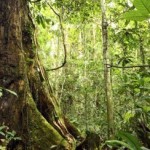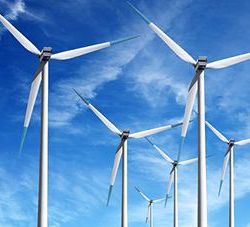Governments who ignore resource limits in their decision-making might put their long-term economic performance at risk. In times of persistent overshoot, those countries running biocapacity deficits will find that reducing their resource dependence is aligned with their self-interest. Conversely, countries that are endowed with biocapacity reserves have an incentive to preserve these ecological assets that constitute a growing competitive advantage in a world of tightening ecological constraints.
Global Footprint Network and its network of partners are supporting governments as well as organizations and financial institutions around the globe in making decisions aligned with ecological reality. Resource accounting, smart urban planning, non-coercive family planning programs, ecological tax reforms, energy transition to renewables, efficiency programs, technology innovation, building standards and green investment strategies are just a few of the many options available.
More and more countries are taking action in a variety of ways.
The Philippines is on track to adopt the Ecological Footprint at the national level – the first country in Southeast Asia to do so – via its National Land Use Act. The policy, the first of its kind in the Philippines, is designed to protect areas from haphazard development and plan for the country’s use and management of physical resources. Legislators are seeking to integrate the Ecological Footprint into this national policy, placing resource limits at the center of decision-making.
The United Arab Emirates, a high-income country, intends to significantly reduce its per capita Ecological Footprint – one of the world’s highest – starting with carbon emissions. Its Energy Efficiency Lighting Standard will result in only energy efficient indoor-lighting products being made available throughout the territory before the end of this year.
Morocco is interested in collaborating with Global Footprint Network on a review of the nation’s 15-year strategy for sustainable development in agriculture, Plan Maroc Vert, through the lens of the Ecological Footprint. Specifically, Morocco is interested in comprehensively assessing how the plan contributes to the sustainability of the agriculture sector as well as a society-wide transition towards sustainability.
Regardless of a country’s specific circumstances, incorporating ecological risk into economic planning and development strategy is not just about foresight – it has become an urgent necessity.
To learn more about Earth Overshoot Day and how it is calculated, visit:
http://www.footprintnetwork.org/en/index.php/GFN/page/earth_overshoot_day/
To calculate your own personal Ecological Footprint, and learn what you can do to reduce it, visit:
http://www.footprintnetwork.org/calculator
Source: Global Footprint Network.
About Global Footprint Network
Global Footprint Network is an international sustainability thinktank working to make ecological limits central to decision-making by advancing the Ecological Footprint, a resource management tool that measures how much nature we have, how much we use, and who uses what. For more information, visit www.footprintnetwork.org.














